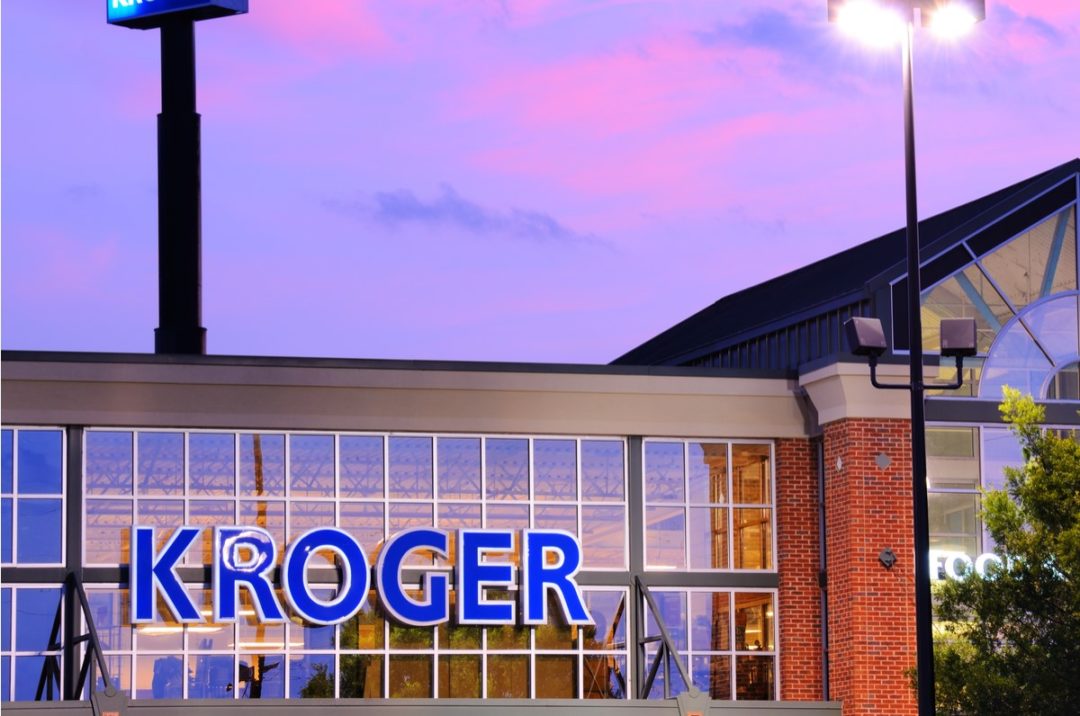
Visit Our Sponsors |
|
|
|
|
|
|
|
|
|
|
|
|
|
|
|
|
|
|
|
|
|
|
|
|
|
|
|
|
|
|
|
|
|
|
|
|
|
|

Kroger Co. Chief Executive Officer Rodney McMullen vows to use Walmart Inc.’s favorite weapon against it: low prices.
The grocery giant is pledging to cut prices by using some of the savings from its $24.6 billion agreement to buy Albertsons Cos. That’s part of the company’s pitch to antitrust regulators on why they should approve the transaction — but it’s also a strategy to compete on Walmart’s long-held turf as the low-price leader.
“I know it’s going to be better for customers because we’re going to invest in pricing to make sure they can stretch their budget better,” McMullen said Oct. 14 in an interview after inking the deal.
At a minimum, Kroger faces tough scrutiny from the U.S. Federal Trade Commission (FTC) for a deal that combines the two largest U.S. operators of traditional supermarkets. But there’s less and less old-line competition these days. Instead, even-larger rivals such as Walmart and Amazon.com Inc. are vying for a bigger piece of the pie by reinventing retail with an array of online offerings, delivery options and ancillary services.
The Albertsons deal “allows us to have a different scale in investing in technology, it gives us the ability to use data on a different scale, the ability to create alternative profits at a different scale,” McMullen said. “All of those are things we’re able to invest in the customer experience and invest in pricing.”
Kroger tumbled 7.3% at the close on Oct. 14, its biggest drop in more than a year, as analysts pointed to the uncertain outcome of the regulatory review and debated the extent of the deal’s benefits. Albertsons fell 8.5%, eroding a 12% jump on Thursday after Bloomberg News reported on the deal talks.
Walmart Comparison
The Albertsons acquisition would give Kroger a revenue base to rival Walmart’s grocery business. Kroger and Albertsons had combined sales of almost $210 billion in their most recent fiscal years, similar to the nearly $220 billion Walmart got from its U.S. grocery business.
Walmart has more than 4,700 U.S. stores, excluding Sam’s Club locations, compared with almost 5,000 combined for Kroger and Albertsons — although the grocers pledged to divest as many as 375 to make their combination more palatable to regulators.

Walmart itself is trying to keep up with Amazon, especially in its general-merchandise business. And all three companies are honing their data-analysis capabilities to try to get consumers to buy more stuff.
“Merging with Albertsons will better position Kroger to compete with Walmart and even Amazon on a national scale,” said Ken Fenyo, president of research and advisory at Coresight Research. “Data is the real gold in the deal.”
On the supermarket shelves, analysts credit Kroger with a long-term effort to narrow its price gaps with Walmart. Whether McMullen can follow through on his promise to make further progress will remain an open question until after the deal closes, a milestone that’s expected in early 2024.
Skeptics of the deal say shoppers, already struggling this year with the highest inflation rates in four decades, will see little relief.
“When these companies say they’ll find efficiencies to lower prices, they really mean that they’ll close stores, lay off workers, and squeeze suppliers to pad pockets for financiers,” said Claire Kelloway, the food-systems program manager at the Open Markets Institute, a nonprofit group that opposes corporate concentration. “Meanwhile, consumers will continue to see the price hikes they do today.”
For investors, consolidation in food retail has historically been disappointing because any efficiencies from combining tend to get eroded by price competition, said Simeon Gutman, an analyst at Morgan Stanley. In the Kroger-Albertsons tie-up, McMullen has promised to use about $500 million of the deal’s financial benefits to cut prices. He also promises new investments in wages, benefits and store improvements.
Then there’s the antitrust review, where the merger’s effect on grocery prices will be front and center. In another high-profile acquisition with antitrust implications, T-Mobile US Inc. promised not to raise prices for three years when it took over Sprint Corp. in 2020. That commitment, which expires in April 2023, hasn’t kept competitors such as AT&T Inc. and Verizon Communications Inc. from charging more amid soaring inflation.
Antitrust Review
Looming large in the antitrust discussions around the Kroger-Albertsons deal will be Walmart. The Bentonville, Arkansas-based company controls the largest share of grocery sales in the U.S., even though many of its stores sell other goods as well.
“An argument can be made that it’s in consumers’ best interest to have a strong No. 2 player as a counterweight,” Ken Goldman, an analyst at JPMorgan Chase & Co., said in a note to clients. “Food producers have been able to push through much more pricing than any observer anticipated; perhaps a more powerful, consolidated food-retail industry would actually be able to combat inflation by having a greater ability to say no to vendors.”
Much will depend on how the FTC defines the market, Morgan Stanley’s Gutman said. The government has argued for narrow market definitions in previous retail mergers, he said. On the other hand, U.S. shoppers buy their groceries not just in traditional supermarkets but also at Walmart, at warehouse stores such as Costco Wholesale Corp. and online from multiple retailers.
“If the FTC argues for a narrow definition in this instance, and focuses only on the traditional grocery channel, the market-share implications would be profoundly different than if the entire food retail industry is accepted,” Gutman said in a note to clients. “The inclusion of Walmart as a competitor could be a key swing factor.”
RELATED CONTENT
RELATED VIDEOS
Timely, incisive articles delivered directly to your inbox.

